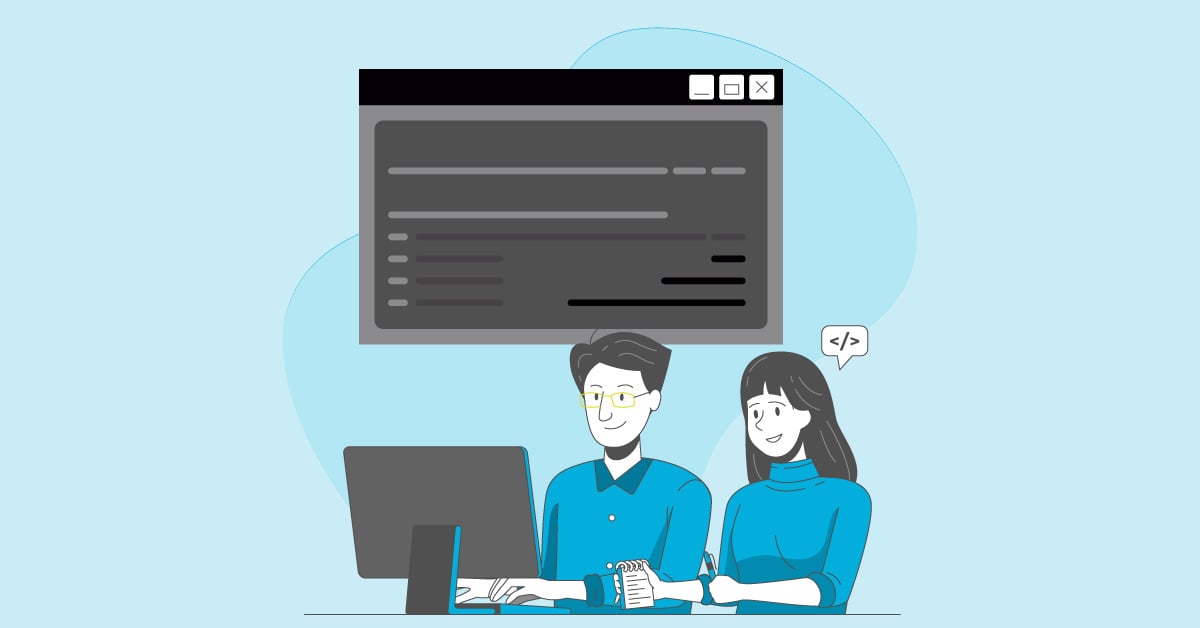Software testing isn't just about squashing bugs; it's about building a product users adore. A seamless user experience builds trust and drives success. Partnering with the right software testing company can be transformative, bringing expertise and specialized tools to elevate your software quality. This guide explores the world of software testing companies, focusing on the advantages of independent software testing companies. We'll cover their core services and what to consider when choosing a partner. We'll also highlight some of the leading software testing companies in the USA and UK, helping you find the perfect fit for your project and budget.
Key Takeaways
- Strategic partnerships are key to effective software testing: Look for a testing partner that understands your specific needs and can scale alongside your business. Clear communication and a collaborative approach are essential for success.
- Prioritizing QA saves time and money: Investing in quality assurance upfront prevents costly fixes later and builds a stronger product and brand reputation. Happy users are a direct result of well-tested software.
- AI is transforming software testing: Stay informed about advancements in AI and machine learning to ensure your testing strategy remains efficient, competitive, and delivers high-quality software.
What Are Software Testing Companies?
Software testing companies specialize in ensuring the quality and functionality of software applications. They act as an independent check on development teams, providing a range of services designed to catch bugs, improve performance, and ultimately, deliver a better user experience. Think of them as a fresh set of eyes, meticulously examining every aspect of an application before it reaches the end-user. These companies offer a variety of testing approaches, from manual testing where testers explore the software like a user would, to automated testing that uses scripts to perform repetitive checks quickly and efficiently. Many also offer specialized services like performance testing to ensure the software can handle heavy loads and security testing to identify vulnerabilities. Working with a software testing company allows development teams to focus on building the software while experts ensure its quality.
Essential Software Testing Services
Software testing companies offer a comprehensive suite of services to address every facet of software quality. These services typically include functional testing, which verifies that the software performs its intended functions correctly; usability testing, which assesses how easy and intuitive the software is to use; and performance testing, which evaluates its responsiveness and stability under various conditions. Localization testing ensures the software functions correctly in different languages and regions, while security testing identifies vulnerabilities that could be exploited by malicious actors. Compatibility testing checks the software's performance across different devices and operating systems, and accessibility testing ensures the software is usable by people with disabilities. The specific services offered can vary depending on the company and the client's needs, but the goal remains the same: to deliver high-quality software that meets user expectations.
Why Software Quality Matters
Quality assurance is the bedrock of successful software development. It's more than just finding bugs; it's about building a product that users love and trust. Thorough testing helps identify and resolve issues early in the development process, which is significantly more cost-effective than fixing them after release. A well-executed QA strategy leads to improved user satisfaction, a stronger brand reputation, and ultimately, a more successful product. Beyond the immediate benefits, robust QA practices contribute to long-term success by fostering a culture of quality within the development team. Reliable QA companies help prevent costly errors, improve user experience, keep up with technology advancements, ensure security and compliance, improve time-to-market, and free up development teams to focus on core features. Investing in quality assurance is an investment in the future of your software and your business.
The Staggering Cost of Software Bugs
Software bugs aren’t just a nuisance; they have a real financial impact on businesses. Research suggests software bugs cost businesses an estimated $2.41 trillion annually. This staggering figure underscores the critical importance of robust software testing and quality assurance practices.
Think about it: fixing a bug after your product launch is significantly more expensive than addressing it during testing. Industry experts estimate that rectifying defects post-release can be up to 30 times more expensive than catching them during development. This highlights the value of investing in quality assurance upfront. It not only saves time and money but also protects your user experience and brand reputation. Early bug detection, like that offered by MuukTest's AI-powered solutions, can significantly reduce these costs by ensuring comprehensive test coverage.
Independent testing, like the services offered by companies listed on QualityLogic's directory, has also proven more effective at identifying defects compared to in-house testing. Independent testers bring a fresh perspective, often catching issues that internal teams might overlook. Partnering with a reputable software testing company reduces the risk of costly errors and helps ensure a higher quality product reaches your customers.
How to Evaluate Software Testing Companies
Finding the right software testing partner is crucial for shipping high-quality software. Here’s what to consider when evaluating potential vendors:
Expertise and Specialties
Not all software testing companies are created equal. Some specialize in mobile app testing, while others focus on security testing or performance testing. Before you start your search, define your specific needs. Do you need help with functional testing, usability testing, or something else entirely? Look for a company with a proven track record in the areas you need support. Client testimonials and case studies can offer valuable insights into a company’s strengths.
High-Paying Testing Specializations
In the ever-evolving world of software testing, certain specializations are not only critical but also financially rewarding. As demand for skilled professionals in these areas grows, companies offer competitive salaries to attract top talent. If you're considering a career in software testing or looking to upskill, focusing on these in-demand areas can be a smart move. Here are a few of the highest-paying testing specializations:
1. Automation Testing: With the rise of agile development and DevOps, automation testing has become essential. Professionals skilled in tools like Selenium, Appium, and TestComplete are in high demand. Automating repetitive tests frees up time and resources, allowing teams to focus on more complex scenarios. This increased efficiency and effectiveness makes automation testers highly valuable. As QA Training Hub notes, “Automation testing is in high demand due to the increasing use of agile development and DevOps” (QA Training Hub, "Which Testing Is In Highest Paid?").
2. Performance Testing: This specialization focuses on ensuring software applications can handle expected loads and perform well under pressure. Prioritizing user experience, companies invest heavily in performance testing to prevent slowdowns and crashes that frustrate users and damage their brand. Performance testers use specialized tools and techniques to simulate real-world usage and identify potential bottlenecks. QA Training Hub also points out that “Performance testing is crucial for ensuring good user experience” (QA Training Hub, "Which Testing Is In Highest Paid?").
3. Security Testing: With increasing cyber threats, security testing has become paramount. Experts in this field identify vulnerabilities and protect software from attacks. They use various methods, including penetration testing and vulnerability scanning, to uncover potential weaknesses. The demand for security testing professionals is high, as “Security testing is very important because of the rise in cyberattacks” (QA Training Hub, "Which Testing Is In Highest Paid?").
4. AI and Machine Learning Testing: As AI technologies become more integrated into software, the need for specialized testing grows. Professionals who can validate AI algorithms and ensure their reliability are increasingly valuable. This emerging field requires a deep understanding of AI concepts and testing methodologies. The right skills translate to exciting career opportunities.
5. IoT (Internet of Things) Testing: With the proliferation of connected devices, IoT testing is crucial for ensuring these devices communicate effectively and securely. This specialization requires a unique skill set, encompassing both hardware and software testing, making it a high-paying area. The complexity of IoT systems presents unique testing challenges, increasing the demand for specialized expertise.
Tech and Tools
The technology and tools a company uses can significantly impact the effectiveness of their testing process. Inquire about the specific tools they use for different types of testing, such as test automation frameworks, performance testing tools, and security scanners. A good testing partner should be up-to-date with the latest testing technologies and be able to recommend the right tools for your project. This can range from open-source solutions like Selenium to commercial platforms. Understanding their tech stack will give you a better sense of their capabilities and how they approach testing.
Industry Experience
A company's experience in your specific industry can be a major advantage. They’ll understand the unique challenges and regulations relevant to your sector. Review their client portfolio and look for companies similar to yours. If they’ve worked with businesses in your industry, they’re more likely to understand your specific needs and deliver relevant solutions. Don’t hesitate to ask for references and speak to their existing clients to get firsthand feedback on their services.
Effective Communication and Collaboration
Software testing is a collaborative process. Choose a company that prioritizes clear and consistent communication. Consider factors like their reporting processes, how often they provide updates, and their responsiveness to your questions. A good testing partner should be proactive in communicating potential issues and work closely with your team to resolve them efficiently. Also, consider whether you prefer working with an onshore or offshore team, as this can impact communication and collaboration dynamics. Location can influence response times and the ease of scheduling meetings, so factor this into your decision.
Onshore vs. Offshore: Implications for Your Project
When selecting a software testing partner, one of the critical decisions you’ll face is whether to choose an onshore or offshore company. This choice has a ripple effect, impacting communication, data privacy, and cost. Onshore testing, meaning the testing team is located in the same country as you, often translates to smoother communication and potentially tighter data security. As QualityLogic points out, location is a “significant factor” impacting these key areas.
While onshore services might have a higher price tag, the benefits of streamlined communication and quick response times can be invaluable. Think fewer misunderstandings, faster problem-solving, and a more collaborative relationship. Offshore testing, with a team located in a different country, can offer cost savings, but it’s important to weigh those savings against potential communication hurdles and project management complexities. QualityLogic highlights this trade-off, noting that while onshore testing is often preferable for communication and security, it can be more expensive.
Ultimately, the best approach depends on your project’s specific needs and priorities. For some projects, the seamless collaboration offered by onshore teams is essential. For others, the cost savings of offshore testing might be the deciding factor. Another option to consider is partnering with an independent testing service like MuukTest. Independent testing provides an unbiased evaluation, leading to higher quality software. This objective perspective can be incredibly valuable in identifying hidden issues and ensuring your software meets the highest quality standards.
Top Software Testing Companies in the USA
Finding the right software testing partner can feel overwhelming. To simplify your search, we've compiled a list of top software testing companies in the USA, highlighting their strengths and specialties. The best choice for your business will depend on your specific project needs and goals.
Top Independent Software Testing Companies
The software testing landscape is constantly evolving, with new companies and innovative solutions emerging all the time. This list highlights some prominent players known for their unique approaches and strengths. Remember, the "best" choice depends entirely on your specific needs and project requirements. For a truly comprehensive solution, consider exploring AI-powered test automation services that can dramatically enhance both efficiency and coverage.
Rainforest QA
Rainforest QA stands out with its no-code testing platform, making UI testing accessible even without coding expertise. They emphasize a UI-focused approach, recognizing that visual glitches can significantly impact user experience. Dedicated test managers and fast turnaround times are also key selling points, allowing for quick identification and resolution of issues. Their use of AI aims to minimize test maintenance, a common pain point in software testing. If your priority is efficient UI testing with minimal coding overhead, Rainforest QA might be a good fit.
QA Mentor
QA Mentor positions itself as a full-service QA provider, covering both manual and automated testing. Their flexible engagement models cater to various project needs and budgets. They boast expertise across a wide range of testing types, suggesting they can handle diverse project requirements. If you're looking for a versatile partner capable of handling various aspects of QA, QA Mentor is worth considering.
DeviQA
DeviQA offers comprehensive QA services and emphasizes their CI/CD integration capabilities, streamlining the testing process within development workflows. They offer flexible engagement models, allowing clients to tailor their services to specific project needs. While they leverage open-source frameworks like Selenium, Appium, and Cypress, it's worth noting that visual bugs can sometimes be overlooked with these tools—a potential consideration for UI-intensive applications. For a solution that prioritizes comprehensive visual testing, explore services like MuukTest.
QASource
Similar to DeviQA, QASource provides a broad range of testing solutions, from functional and non-functional testing to specialized areas like IoT, Salesforce, and security testing. They also utilize open-source frameworks, which, as mentioned earlier, may have limitations in detecting visual discrepancies. If you need a wide range of testing services and are comfortable with open-source tools, QASource could be a viable option. However, if complete visual test coverage is critical, consider exploring alternatives like MuukTest.
Test IO
Test IO differentiates itself with its crowd-powered testing approach, leveraging a global network of testers to provide diverse perspectives and rapid testing cycles. They highlight their fast onboarding process, suggesting a quick start for new projects. While they use open-source frameworks like Playwright, Selenium, and Cypress, the potential for missing visual bugs, as with other companies using similar frameworks, is worth noting. If comprehensive visual testing is a priority, consider exploring solutions like MuukTest, which specializes in this area.
QAwerk
QAwerk caters to both startups and larger enterprises, offering a full spectrum of testing services. From web and mobile app testing to desktop applications, manual and automated testing, and even technical writing, they aim to provide a one-stop shop for QA needs. Their experience with clients ranging from startups to established companies like Squarespace suggests adaptability to different project scales and complexities. For those seeking rapid, comprehensive test coverage, consider exploring automated solutions like MuukTest, known for achieving complete coverage within 90 days.
MuukTest
MuukTest specializes in AI-powered test automation, designed to help growing engineering teams efficiently ensure software quality. They promise comprehensive test coverage within 90 days, integrating seamlessly with your existing development workflows. This allows your team to prioritize building your product, not managing complex testing processes. For scaling your testing efforts without compromising speed or quality, explore MuukTest and their client success stories. They also offer flexible pricing and a straightforward quickstart guide to get you up and running.
Accenture
Accenture, a global leader in professional services, offers a wide range of solutions, including comprehensive software testing. They use cutting-edge technologies and proven methodologies to deliver high-quality software. Accenture's extensive resources and global presence make them a good fit for large-scale projects and enterprises with complex testing requirements.
Capgemini
Capgemini emphasizes automation and performance testing, helping clients meet their quality assurance targets. Their diverse service offerings cater to various industries, making them a flexible option for businesses needing comprehensive testing solutions.
IBM
IBM provides software testing solutions incorporating AI and automation, improving the efficiency and effectiveness of testing processes. Their reputation for innovation and technical expertise makes them a solid choice for companies looking for advanced testing capabilities.
Cognizant
Cognizant offers a range of services, from functional and performance testing to automated solutions. Their innovative approach to software testing helps businesses ensure quality and reduce time to market.
Infosys
Infosys prioritizes quality assurance and uses automation to streamline testing efficiency. Their comprehensive services make them a reliable partner for businesses seeking a well-rounded testing solution.
Wipro
Wipro offers both manual and automated testing, ensuring high-quality software delivery. Their diverse testing capabilities accommodate a wide range of project needs.
TCS
TCS uses advanced technologies to ensure quality and compliance in software development. Their extensive testing services suit businesses with strict quality standards.
QualityLogic
QualityLogic provides a full suite of QA testing services, including manual, automated, API, and accessibility testing. They focus on client satisfaction and tailor solutions to meet specific business requirements.
Mindful QA
Mindful QA specializes in QA testing, user experience, and Agile consulting. Their focus on delivering high-quality software through comprehensive testing makes them a valuable partner for businesses that prioritize user-centric design.
Key Services of Leading Software Testing Companies
Software testing companies offer a wide range of services to help businesses ensure their software is high-quality, reliable, and meets user expectations. From traditional methods to cutting-edge technologies, these services cover every aspect of the software development lifecycle. Let's explore some key offerings:
Manual vs. Automated Testing
Many companies offer both manual and automated testing. Manual testing involves human testers meticulously checking software for defects, usability issues, and overall functionality. Automated testing uses scripts and tools to execute tests quickly and repeatedly, often integrated into a CI/CD pipeline. Services like MuukTest specialize in test automation, helping teams achieve comprehensive test coverage efficiently. A blend of both manual and automated approaches is often the most effective strategy.
Prioritizing UI Testing
User interface (UI) testing is critical for software quality. It focuses on the visual aspects of your application, ensuring the software not only functions correctly, but also provides an intuitive and engaging user experience. As Rainforest QA points out, UI testing catches visual bugs that code-only tests miss, highlighting the importance of a thorough examination of the user interface. This is essential for delivering a product that resonates with users and meets their expectations.
A comprehensive testing strategy should include both automated and manual UI testing. Automated tests efficiently handle repetitive tasks, like checking button functionality and form submissions. MuukTest’s services can help you implement robust automated UI testing. Manual testing, however, allows for a more nuanced evaluation of usability and user experience. Think of it as having a real person explore your software, providing feedback on how intuitive the design is and whether the flow feels natural. QualityLogic notes that a well-executed QA strategy, including robust UI testing, leads to improved user satisfaction, a stronger brand reputation, and a more successful product.
Incorporating UI testing into your software development lifecycle not only helps catch bugs early, but also fosters a culture of quality within your team. Prioritizing UI testing ensures your applications are not only functional, but also visually appealing and user-friendly, ultimately driving user engagement and satisfaction.
Performance and Security Testing
Performance testing assesses how software behaves under stress, ensuring it can handle expected user loads and maintain responsiveness. Security testing identifies vulnerabilities that could be exploited by malicious actors, protecting sensitive data and user privacy.
Mobile and Cross-Platform Testing
With the widespread use of mobile devices, testing across different platforms (iOS, Android, etc.) is crucial. Mobile testing ensures your app functions correctly on various devices, screen sizes, and operating systems. MuukTest offers specialized mobile and cross-platform testing solutions.
AI-Powered Test Automation
AI is transforming software testing, enabling more efficient and intelligent automation. AI-powered tools can analyze code, predict potential defects, and even generate test cases automatically. MuukTest leverages AI to deliver comprehensive test coverage within 90 days.
Continuous Testing and DevOps
Continuous testing integrates testing throughout the software development lifecycle, ensuring quality at every stage. This approach aligns perfectly with DevOps practices, enabling faster releases and quicker feedback loops.
API Testing
APIs are the backbone of modern software, connecting different systems and enabling data exchange. API testing verifies that these connections function correctly, ensuring seamless integration and data integrity. Many leading software testing companies offer dedicated API testing services.
Accessibility Testing
Accessibility testing ensures that software is usable by people with disabilities, adhering to guidelines like WCAG. This is not only ethically important but also increasingly required by regulations. Many companies now prioritize accessibility testing, as highlighted in resources like MuukTest's blog.
What Sets Top Software Testing Companies Apart?
Not all software testing companies are created equal. Several key factors differentiate the best from the rest, impacting the effectiveness and efficiency of your testing process. Understanding these differences helps you choose a partner aligned with your specific needs.
AI and Machine Learning Integration
Leading testing companies leverage AI and machine learning to enhance their testing processes. This integration allows for more intelligent test automation, predictive analysis, and faster identification of potential issues. Think of it as having a tireless assistant that can sift through massive amounts of data, spot patterns, and predict problems before they impact your users. MuukTest, for example, uses AI to power its test automation services, enabling comprehensive test coverage within a short timeframe.
Domain-Specific Expertise
Top-tier software testing companies often specialize in specific industries or types of software. This focused expertise translates to a deeper understanding of the unique challenges and requirements of your project. Whether you're developing a fintech app or a healthcare platform, partnering with a company that understands your domain can significantly improve the quality of your testing. Look for companies with a proven track record in your industry and successful projects.
End-to-End Testing
The ability to handle all aspects of the testing process, from initial planning and design to execution and reporting, is a hallmark of top testing companies. End-to-end testing ensures that all components of your software work together seamlessly and provides a comprehensive view of its overall quality. This streamlined approach simplifies project management and ensures consistent results. Learn more about the benefits of end-to-end testing.
Scalability and Flexibility
Your testing needs can change rapidly, especially in today's agile development environments. The best software testing companies offer scalable solutions that can adapt to your evolving requirements. Whether you need to ramp up testing for a major release or scale down during quieter periods, a flexible partner can provide the resources you need when you need them. This adaptability is crucial for maintaining efficiency and controlling costs.
Onshore vs. Offshore Testing
The location of your testing team can impact communication, collaboration, and cost. Top testing companies often provide both onshore and offshore options, allowing you to choose the best fit for your project. Onshore testing offers closer proximity and easier communication, while offshore testing can provide cost savings. Consider your priorities and project requirements when making this decision.
Test Independence: Why It Matters
Bringing in an independent perspective for software testing offers significant advantages. Think of it like getting a second opinion on something important—a fresh pair of eyes can often catch things that might be missed otherwise. Independent software testing companies bring an unbiased approach, free from the inherent biases that can sometimes appear when testing your own work. This objectivity is crucial for identifying hidden flaws and ensuring a truly user-centric product. Plus, independent testing companies often have specialized expertise and access to advanced tools that internal teams may not, further enhancing the thoroughness of the testing process. This all contributes to a higher quality product and a better user experience.
Benefits of Independent Testing
Independent testing offers a range of benefits that contribute to higher quality software. An unbiased evaluation is a key advantage, providing an objective assessment of your software's strengths and weaknesses. This is especially valuable for catching defects that in-house teams, often closely involved in the development process, might overlook. This fresh perspective can uncover usability issues and areas for improvement that might otherwise go unnoticed. Independent testing companies also bring specialized expertise, often possessing in-depth knowledge of specific testing methodologies, technologies, and industry best practices. This specialized knowledge, combined with access to cutting-edge tools, allows for more comprehensive and efficient testing. Ultimately, independent testing leads to a higher defect discovery rate, reducing the risk of costly post-release fixes and contributing to a more polished and reliable product. The cost of fixing bugs after release is significantly higher than addressing them during the testing phase. Investing in independent testing is a strategic move that can save you time, money, and headaches in the long run. For companies looking to streamline this process, consider exploring options like MuukTest's services for a comprehensive and efficient approach.
Client Ratings and Recognition
Client feedback and industry recognition offer valuable insights into a software testing company's capabilities and performance. These factors can significantly inform your decision-making process.
Client Testimonials
Direct feedback from clients provides a real-world perspective on a testing company's strengths and weaknesses. Platforms like Clutch offer verified reviews and ratings. These reviews often highlight aspects such as a company's delivery time, problem-solving skills, and communication effectiveness. For example, Bug Hunters consistently receives praise for its attention to detail, leading to reduced defect rates and improved testing efficiency. Similarly, Mojo Trek is frequently commended for its strong project management and clear communication, ensuring smooth collaboration. At MuukTest, our clients value our team's dedication to creating and maintaining comprehensive end-to-end tests across various platforms, enabling them to achieve complete test coverage quickly. Reading these reviews can give you a clearer picture of what it's like to work with a particular company.
Awards and Certifications
Industry awards and certifications serve as external validation of a company's expertise and commitment to quality. Organizations recognize top performers in software testing and showcase companies with proven track records and innovative solutions. These accolades demonstrate a company's dedication to staying ahead of industry best practices and delivering exceptional results. Look for companies that have received recognition for their technical skills, client satisfaction, and overall contributions to the software testing community. This information can help you identify companies that consistently exceed standards and deliver high-quality services.
Pricing and Packages
Choosing the right software testing company involves many factors, but pricing and service packages are key. Understanding how different companies structure their pricing will help you make informed decisions and manage your budget effectively. Let’s look at common pricing models and the importance of customized solutions.
Understanding Software Tester Hourly Rates
Software tester hourly rates vary based on several factors. Experience and skillset are key; a junior tester focusing on manual testing will likely have a lower hourly rate than a senior tester specializing in automated security testing. Location also plays a significant role, as rates for testers in Silicon Valley will differ from those in other regions. Your choice of onshore versus offshore teams also influences cost. Offshore teams often offer more competitive rates. Remember, investing in quality assurance upfront, even with potentially higher hourly rates, can prevent costly fixes later. Ultimately, consider the hourly rate in relation to the value provided. A highly skilled tester can identify critical bugs early, saving you significant time and money. For a deeper understanding of QA's value, explore MuukTest’s insights on software testing services.
Fixed-Price vs. Time & Materials
Two common pricing models in software testing are fixed-price and time and materials. A fixed-price contract sets a total cost for the project upfront. This offers predictability, making budgeting straightforward. However, fixed-price contracts can be less flexible if project requirements change.
Time and materials contracts bill based on the hours worked and resources used. This model offers more flexibility for evolving project needs and is often preferred for projects with uncertain scopes. However, it can be harder to predict the final cost. The choice between these models depends on your project's specific needs and risk tolerance. Location also impacts cost, so consider whether onshore or offshore testing better suits your needs.
Customized Testing Solutions
Many software testing companies offer customized solutions tailored to specific business requirements. This is important because every software project is unique, with its own set of objectives, technologies, and challenges. Defining your testing objectives before researching potential partners is a crucial first step in finding the right customized solution. A customized approach allows testing companies to focus on the areas most critical to your business, whether that's security testing, performance testing, or something else entirely.
A good testing partner will work with you to understand your goals and design a testing strategy that meets those goals effectively. They can also help you scale your testing efforts as your business grows. Remember, evaluating a company's experience and technology is essential for ensuring the customized solutions align with your goals. Requesting demos and assessing their technology are valuable steps in this process.
Find the Right Software Testing Partner
Finding the right software testing partner is crucial for your software's quality and your business's success. It's about building a strategic partnership aligned with your long-term goals, not just checking off boxes. This section guides you through key considerations for selecting a testing partner who can truly elevate your software quality.
Matching Needs with Company Expertise
Before evaluating potential software testing companies, define your testing objectives. What are your specific needs and pain points? Are you looking for functional testing, performance testing, security testing, or a combination? Understanding your requirements is the first step toward finding a partner who can meet them. Once you have a clear picture, research potential partners and assess what they offer. Consider factors like client reviews, service quality, expertise, cost, and compatibility with your existing systems. Request demos and consultations to see their capabilities and approach firsthand.
Building Long-Term Partnerships
Choosing a QA partner is about building a lasting relationship. The right partner becomes an extension of your team, collaborating to ensure your software meets the highest quality standards. As the demand for high-quality software grows, so does the importance of a reliable and adaptable testing partner. This strategic decision impacts product quality, time-to-market, and overall costs. Customer reviews offer valuable insights into a company's reliability and service quality—essential for a successful long-term partnership. Before committing, research the company's reputation and explore client testimonials. MuukTest's guide offers further advice on this process. A strong partnership with your testing provider can be a significant asset in achieving your software quality goals.
The Future of Software Testing
Software testing is constantly evolving. Staying ahead of the curve means understanding emerging trends and how they’ll impact software development. Let's look at what's on the horizon.
Emerging Trends in Software Testing
The software testing industry is experiencing rapid growth. Experts predict the outsourced software testing market will expand significantly by 2034, fueled by the demand for high-quality software experiences. This increasing demand for specialized testing providers underscores the need to ensure software not only functions correctly but also meets user expectations. Professional software testing services play a crucial role in minimizing errors and rework, ultimately reducing costs and improving the user experience.
The Expanding Role of AI
Artificial intelligence is transforming software testing, enabling greater efficiency and accuracy. Companies are increasingly seeking AI-powered solutions to streamline their testing processes and achieve more comprehensive test coverage. AI-driven test automation is a prime example of this shift, with providers like MuukTest demonstrating the ability to achieve complete test coverage within 90 days. This rapid advancement in testing technology has significant implications for software development. The growing use of AI and machine learning in software development also creates a corresponding need for skilled testers who can validate these complex systems, ensuring the accuracy and performance of AI-driven applications.
Frequently Asked Questions
How can I determine the specific software testing services my company needs?
Start by identifying your biggest challenges and goals. Are you struggling with bugs in production, slow performance, or security concerns? Do you need help with a specific type of testing, like mobile or performance testing? Talking to your development team and understanding their current testing processes can also help pinpoint areas for improvement. Once you have a clearer picture of your needs, you can start looking for a software testing company that specializes in those areas.
What are the key differences between manual and automated testing, and which one is right for me?
Manual testing involves human testers exploring the software, interacting with it like a user would, and looking for defects. It's great for usability testing and exploratory testing where human intuition is valuable. Automated testing uses scripts to perform repetitive tests quickly and efficiently. It's ideal for regression testing and performance testing. Many companies use a combination of both, leveraging the strengths of each approach. The best choice for you depends on your project's specific needs and budget.
How much does software testing cost, and how can I budget for it effectively?
Software testing costs vary depending on the scope of the project, the types of testing required, and the location of the testing team. Some companies offer fixed-price contracts, while others use a time-and-materials model. It's essential to discuss your budget with potential testing partners upfront and get a clear understanding of their pricing structure. Consider the long-term costs of not testing thoroughly, such as fixing bugs in production or dealing with security breaches, which can far outweigh the initial investment in quality assurance.
What are the most important factors to consider when choosing a software testing company?
Look for a company with expertise in the types of testing you need, a strong track record, and a commitment to clear communication. Consider their experience in your industry, the tools and technologies they use, and their approach to collaboration. Client testimonials and case studies can provide valuable insights into their performance and client satisfaction. Don't hesitate to ask for references and speak to their existing clients.
How can I ensure a smooth and successful collaboration with my chosen testing partner?
Clear communication and well-defined expectations are key. Establish clear communication channels, reporting processes, and regular update meetings. Ensure both teams are aligned on project goals, timelines, and deliverables. A good testing partner will be proactive in communicating potential issues and work closely with your team to resolve them efficiently. Treat your testing partner as an extension of your team, fostering a collaborative environment where everyone is working towards the same goal: delivering high-quality software.












